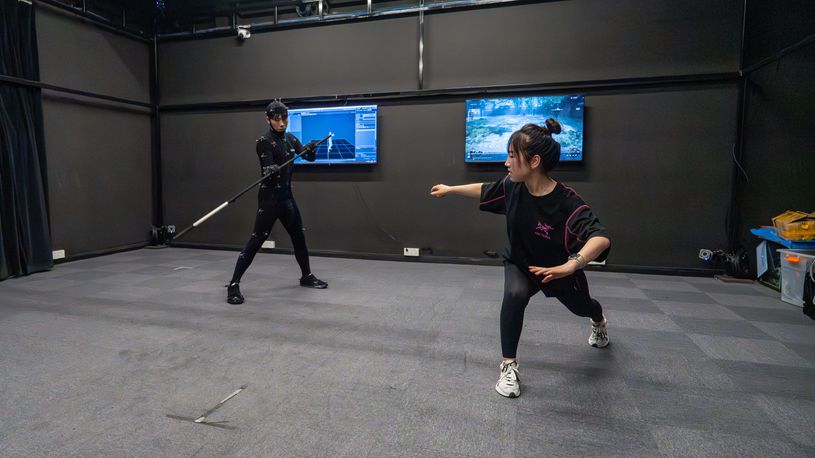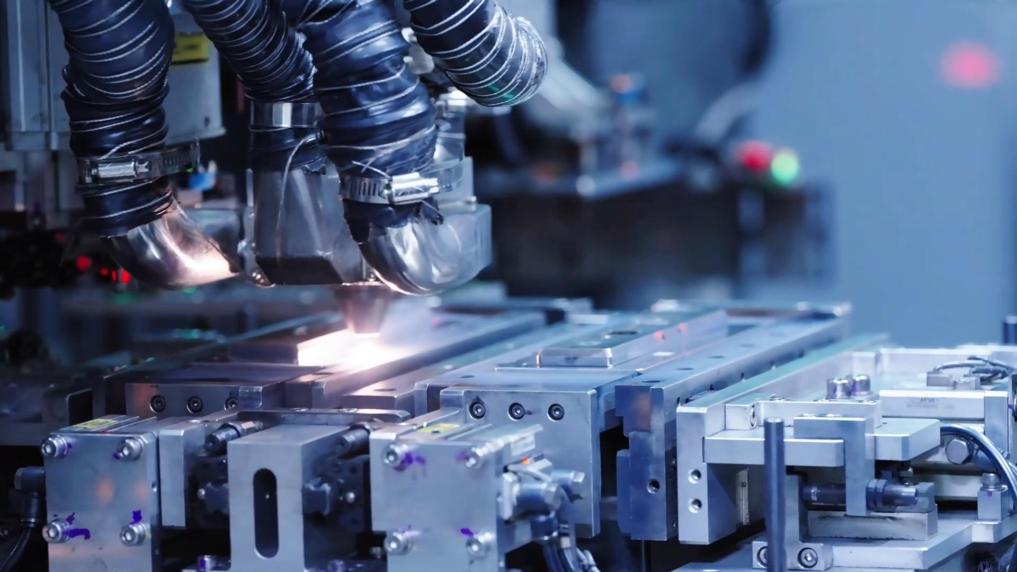China speeds up sci-tech, industrial innovation integration to steer high-quality development
Source: Xinhua
Editor: huaxia
2025-07-28 20:51:15
* China has recently accelerated the integration of sci-tech innovation with industrial innovation, demonstrating remarkable achievements in pursuing high-quality development.
* The secret behind the innovation boom lies in China's robust industrial ecosystem, which is built on a policy framework to improve relevant services and help translate patents into products.
* Going forward, China will strengthen the principal position of enterprises in sci-tech innovation, thereby creating a stronger synergy between scientific and industrial innovation.
BEIJING, July 28 (Xinhua) -- In a Beijing medical device company, a surgical robot carefully peeled the shell of a raw quail egg without breaking the inner membrane. Meanwhile, in a commercial space facility, engineers were using 3D printing technology to produce rocket components.
More than 2,000 kilometers away in south China's Guangdong Province, underwater robots can conduct equipment maintenance and emergency operations, while drones have achieved 24-hour ultra-long flight under stable power conditions.
These scenes capture China's recent acceleration in integrating sci-tech innovation with industrial innovation, demonstrating remarkable achievements in pursuing high-quality development.
From January to May 2025, the number of China's effective invention patent applications reached nearly 5 million, up 12.8 percent year on year, while the revenue of major emerging service enterprises with strategic importance increased almost 10 percent. The value-added industrial output of major high-tech manufacturers increased by 9.5 percent in the first half.
What propelled this impressive progress? And what future actions will be taken to promote such integration? In the latest episode of China Economic Roundtable, an all-media talk show hosted by Xinhua News Agency, industrial and science officials, a national innovation center director, and a co-founder of a high-tech firm shared their insights.
INNOVATION INTEGRATION IN FULL SWING
For Liu Qing, director of the National Innovation Center par Excellence (NICE), a Chinese institution focused on transforming and industrializing scientific advancements, this year has been exceptionally busy so far.
Over the past months, the NICE has hosted science and innovation forums in countries including Denmark and Australia, and added 11 new overseas strategic partners in the first half of 2025, bringing the total number of its international partners close to 100.
"The market prospects for industrial development in China are indeed very attractive to overseas scientists," said Liu while speaking at the roundtable.
"China's influence as a significant global innovation hub has continued to rise, accelerating its transformation from a participant and contributor to a pioneer and leader in global science and technology," said Qin Haoyuan, an official with the Ministry of Science and Technology.
In sectors spanning quantum technology, life sciences and artificial intelligence, China has seen significant breakthroughs, with many industries leading the world, Qin told the roundtable.
The country's total research and development (R&D) investment now ranks second globally, according to him. Enterprises play a key role in driving innovation, with their R&D expenditure and personnel both accounting for over 75 percent of national totals.
According to Gao Qianfeng, co-founder and vice president of GalaxySpace, a Beijing-based commercial space firm, the secret behind turning scientific breakthroughs into commercialized products lies in China's robust industrial ecosystem.
Noting that the space firms' supply chain spans over 1,000 partners across enterprises, universities, and research institutions, Gao said navigating this extensive ecosystem requires deep collaboration.
"Such open collaboration creates catalytic chemistry between labs and factories," he said.
A POLICY-BACKED ECOSYSTEM
Behind this pro-innovation system was the establishment of a policy framework that the Chinese government built to improve relevant services and help translate patents into products.
In May of this year, China released a guideline on accelerating the high-quality development of the science and technology services sector, which outlined specific tasks across key areas, including R&D, technology transfer and commercialization, business incubation, and technology promotion.
"The science and technology service industry is a key support for promoting deep tech-industrial integration and developing new quality productive forces," said Gan Xiaobin, an official with the Ministry of Industry and Information Technology.
Gan said the ministry has worked in areas including building innovation platforms, strengthening market players, promoting major sci-tech programs, establishing standards for emerging sectors, and optimizing ecosystems through talent programs and financial support.
As one of the pro-innovation platforms, NICE, established in 2021, has helped leading tech firms meet their innovation demands, including addressing issues related to environmental protection and digitalization.
"Up till now, over 500 leading enterprises are willing to work with us, and the most remarkable thing is that we have built a team capable of dealing with enterprises -- the tech managers," said Liu, noting that the center has worked with these firms on tech roadmaps, upstream and downstream companies, and future strategies.
Meanwhile, the science and technology ministry also steered reforms such as empowering researchers with ownership rights to their work-related scientific achievements as well as piloting evaluation mechanisms that match different types of research outcomes.
Qin said the science and technology ministry has supported enterprises in undertaking major national scientific research tasks, with improved tax policies aimed at encouraging greater R&D spending.
Leading tech firms are encouraged to lead the formation of innovation consortia with universities, research institutes, and small and medium-sized enterprises, and to build high-level scientific and technological innovation platforms, he noted.
Going forward, officials from the two ministries pledged to strengthen the principal position of enterprises in scientific and technological innovation, thereby building a stronger synergy between scientific and industrial innovation.
Gan said that for the next stage, he expected enterprises to have more say in government decision-making concerning innovation by inviting more experts from enterprises to participate in national projects, guideline formulation, and project evaluations.
The government would also strive to build a financial system that is compatible with sci-tech innovation, improve the national innovation policy system, and foster an open environment for sci-tech innovation with global competitiveness, according to Qin.
"Sci-tech innovation is the source of vitality, while industrial innovation is the bridge of transformation. Their deep integration shall be the key pathway for cultivating new quality productive forces and promoting new industrialization," Gan concluded. ■












Comments